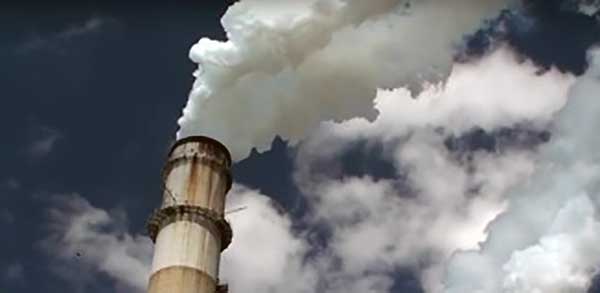India’s air pollution mitigation action is hugely concentrated in cities and often ignores the rural parts of the country, a new report said on Wednesday.
The report, ‘Status of urban and rural air quality exposure at a national scale: A comparative analysis’, by Climate Trends revealed that air pollution continues to be a significant problem affecting both rural and urban populations.
According to the analysis, PM 2.5 levels in the rural and urban regions across India are not very different.
While these have witnessed a similar trend of decline over the last few years, levels continue to be higher than safe limits in most states.
PM 2.5 is fine inhalable particles, with diameters that are generally 2.5 micrometers and smaller. Rural regions saw PM 2.5 levels decline by 19.1 per cent, and urban regions recorded an 18.7 per cent dip in PM 2.5 levels between 2017 and 2022, according to the analysis.
To bring focus on the possible impacts of air pollution on the country’s rural population, Climate Trends used Dr Sagnik Dey’s PM 2.5 SAANS data (satellite data) and the Global Human Settlement Layer (GHSL) data for urban and rural classification to analyse the air pollution levels across states between 2017 and 2022.
The analysis also showed that with a reduction of 37.8 per cent and 38.1 per cent in urban and rural PM 2.5 levels, respectively, Uttar Pradesh has recorded the best progress from 2017 to 2022.
Maharashtra was the worst performing state, with only a dip of 7.7 per cent in its urban PM 2.5 levels, while with a decrease of 8.2 per cent in its rural PM 2.5 levels, Gujarat made the least progress.
The Union Territories (UTs) of Dadra and Nagar Haveli and Daman and Diu, too, made little progress, with approximately a 4-7 per cent decrease in PM 2.5 from 2017 to 2022.
With urban PM 2.5 levels up by 0.3 per cent, Chandigarh was the only union territory or state to see an increase.
The analysis also highlights the value of satellite data in tracking the air pollution problem in the country.
While satellite data has some limitations since it is retrieved from aerosol optical depth (AOD) and not the direct PM2.5 monitoring, this 1 km by 1km data set provides a holistic spread across the country, which the expensive ground-based monitoring network of Continuous Ambient Air Quality Monitoring Stations (CAAQMS) stations currently do not cover.
Since rural areas are largely excluded from the air quality monitoring programme, the CAAQMS data supplied to validate the satellite-derived data results in a more homogenised outlook between the urban and rural air pollution levels.
However, the data is widely published in scientific journals and can give a starting point to highlight the need for a better rural monitoring network and for air pollution mitigation efforts to extend beyond the cities.




Fall of Congress in Gujarat: Three decades of decline and struggle for relevance
The Congress party was once the dominant political force in Gujarat, shaping the state’s governance since independence. However, over the past 30 years, the party has witnessed a dramatic downfall, losing ground to the BJP’s aggressive electoral strategies, organisational strength, and ideological appeal.
‘Disempowering Muslims’: J&K political parties oppose Waqf (Amendment) Bill
All political parties of J&K, except the BJP, opposed the Waqf (Amendment) Bill, saying that the Bill is intended to disempower Muslims and only target one religion.
Radical group founder wanted in Jaipur serial blast plot apprehended in Ratlam
The Madhya Pradesh Police in Ratlam achieved a significant breakthrough in apprehending Firoz, also known as Sabji, a fugitive implicated in a conspiracy to execute serial blasts aimed at creating panic and terrorising the Rajasthan capital city of Jaipur.
Amit Shah & Akhilesh Yadav’s lighter exchange in LS over party president
Amid the uproar and heated debate between the ruling party and the Opposition over the Waqf Amendment Bill on Wednesday, the Lok Sabha witnessed some lighter moments between Home Minister Amit Shah and SP President Akhilesh Yadav.
Waqf Bill weakens Constitution, defames minorities, divides society: Gaurav Gogoi
As Parliament debated the contentious Waqf Amendment Bill, 2025, on Wednesday, deputy leader of Opposition in the Lok Sabha Gaurav Gogoi came down heavily on the government.
Bill not linked to religion, it’s prospective and not retrospective: Kiren Rijiju flays naysayers
Union Minister for Minority Affairs Kiren Rijiju on Wednesday tore into the Opposition for ‘spreading falsehood’ over the Waqf Amendment Bill and urged the ‘doubters and naysayers’ to refrain from misleading the people on the proposed reforms.
Parliament was being claimed as Waqf property: Rijiju slams UPA for making provisions 'overriding' other laws
Parliamentary Affairs Minister Kiren Rijiju on Wednesday bashed the previous UPA government for de-notifying 123 properties and handing them over to the Delhi Waqf Board.
Bhopal’s Muslims burst firecrackers in support of Waqf (Amendment) Bill
A large number of Muslims in Madhya Pradesh's capital, Bhopal, burst firecrackers on Wednesday to express their support for the Waqf (Amendment) Bill, which was presented in the Lok Sabha earlier in the day.